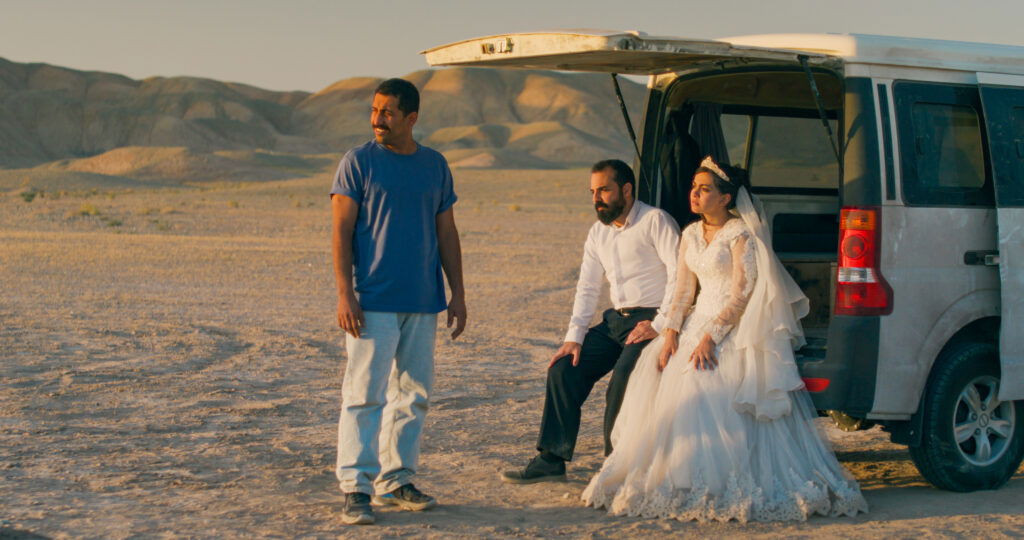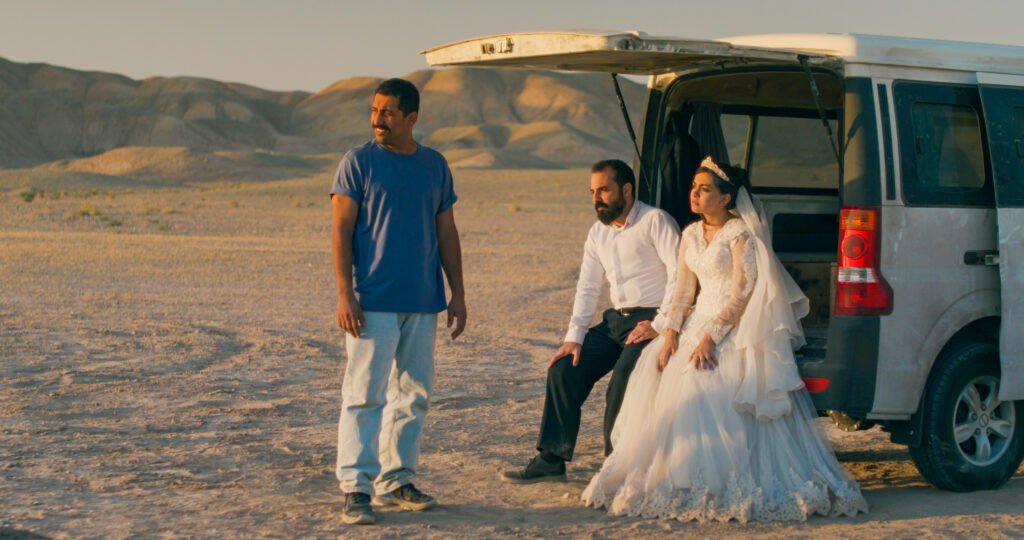It’s impossible to separate the cinema of Jafar Panahi, the acclaimed Iranian filmmaker, from a heavy and oppressive political context; It Was Just an Accident is no exception. As I prepared for its screening, my expectations were primarily shaped by the movie’s recent Palme d’Or win at Cannes. While I’m not one to elevate my anticipations based solely on festival prizes — which often tend to be driven by external biases — I knew that the jury’s recognition, in this case, was a profoundly political choice, acknowledging both the director’s bravery and his body of work.
The question that lingered was whether the artistic merit could truly surpass the weight of the exile and repression narrative, or if this feature film would become just another piece of valid denunciation that ultimately failed in its cinematographic depth.
It Was Just an Accident is a thriller written and directed by Panahi himself (The Circle), a co-production with a strong political nature. The title focuses on Vahid (Vahid Mobasseri), a mechanic who, after a seemingly mundane car accident, encounters Eghbal (Ebrahim Azizi), a man Vahid believes to be his former sadistic torturer. Vahid’s certainty is based on a physical detail — the distinctive sound of Eghbal’s prosthetic leg. Wh at follows is an impulsive kidnapping that quickly escalates into a tense meeting of regime survivors, all linked by shared traumatic experience and the urgent need to confirm the captive’s identity and, more importantly, decide his fate.
It Was Just an Accident review

For the most part, Panahi delivers on his promise: a compelling thriller that explores the environment of Iranian oppression and the complex morality of retaliation. The narrative places citizens, who vehemently oppose the regime and its ideals, in the position of judges and executioners. It’s a brutal inversion of roles. The story is built around claustrophobia and debate, often taking place in enclosed spaces — namely, inside the van — or during the forced movement through the capital.
Formally, the film employs very long takes and extended dialogues which, while creating a palpable sense of tension and realism, also result in an inevitable feeling of being derivative. This observational camera format is effective at conveying the suffocation of the situation, but there are moments where the thematic analysis and character exploration are excessively underlined. The message of the work — the pain of repression and the desire for justice — is, at times, so hammered into the viewer’s head that subtlety gets lost along the way.
The depth of It Was Just an Accident only finds its true impact when the screenplay finally steps away from didacticism and offers concrete details about these characters’ lives and the nature of the violence that haunts them. It’s in these moments, when the focus centers on the shared trauma and the psychological fragility of those bearing the scars of the regime, that the experience becomes truly intimate and powerful. The vigorous performances of the ensemble cast are crucial to keeping this flame burning, anchoring the emotional tensions in the authenticity of their pain.

Who Is the Director of ‘Caught Stealing’? Austin Butler, Zoë Kravitz Movie Director’s Career Has a Combined 11 Oscar Nominations
There’s also an interesting use of color by cinematographer Amin Jafari, who employs the visual palette to represent feelings or the emotional weight of certain scenes. However, the movie struggles to maintain a cohesive tone. Panahi inserts moments of dark humor and satire, often linked to the corruption of the Iranian bureaucracy and security — such as a moment involving a bribe via a debit card — that are juxtaposed with the heavy threat of death. This mixture of vehement drama and comedy doesn’t always mesh well, potentially compromising the emotional gravity the premise demanded. It’s a risky dance between the absurdity of the regime and the tragedy of its victims, and not all steps of this choreography are in harmony.
Fortunately, the great strength of the film lies in its conclusion, specifically the final shot. This is the ending that, in my view, elevates the movie above its secondary flaws. It’s a devastating and profoundly impactful climax, one that compels the group of survivors and the viewer themselves to confront the true price of retaliation and the nature of forgiveness.

Austin Butler Rules Out Playing James Bond but Might Still Fit the Franchise
Is It Was Just an Accident worth watching?
It Was Just an Accident is a testament to the unwavering courage of Jafar Panahi, a filmmaker who refuses to be silenced. It’s a brave protest executed as a psychological thriller that, despite occasionally stumbling in its own need to be overtly political — with the message sometimes delivered too directly — manages, in its conclusion, to transcend its narrative and raise moral questions that are difficult to ignore. It’s an intense and intrepid invitation to confront the inconvenient truth that, under an oppressive regime, the line between justice and fatality is often drawn by chance.
It Was Just an Accident screened at the 2025 BFI London Film Festival, which releases in theaters on October 15.





